U.S. Government Posts $209 Billion Deficit in March
The U.S. government ran a $209 billion budget deficit in March as outlays grew and receipts fell, the Treasury Department said. That compared with a budget deficit of $176 billion in the same month last year, according to Treasury's monthly budget statement.
When accounting for calendar adjustments, the deficit was $165 billion in March compared with an adjusted deficit of $134 billion in the same month the previous year.
The deficit for the fiscal year, which started in October, was $600 billion, compared to a deficit of $527 billion in the same period of fiscal 2017.
Unadjusted receipts last month totaled $211 billion, down three percent from March 2017, while unadjusted outlays increased to $420 billion, which is seven percent higher from the same month the previous year.
The Congressional Budget Office had expected a $207 billion deficit for March. The nonpartisan agency said this March had one less business day than March 2017, and a smaller share of wage income is being withheld this year for taxes.
The CBO recently forecast that the federal deficit will reach $804 billion in fiscal 2018, up from $665 billion in fiscal 2017. It increased its estimate for this year's deficit mostly due to recent legislation that cut taxes and increased spending on the military and domestic programs. It had already expected widening deficits in the coming years as outlays, including spending on programs like Social Security and Medicare, rise faster than revenue.
Prime News are provided byInstaForex.
Please visit our sponsors
Results 1,961 to 1,970 of 3458
Thread: Forex News from InstaForex
-
12-04-2018, 04:57 AM #1961

-
13-04-2018, 03:17 AM #1962

Trump Administration Weighs U.S. Options on Syria
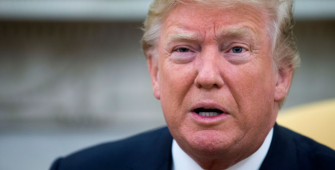
U.S. President Donald Trump along with his administration's security aides mulled U.S. options on Syria, where he has threatened missile attacks in reaction to an alleged poison gas attack.
Concerns regarding a confrontation between Russia and the Western allies have been escalated since Trump said on Wednesday that missiles will be launched in response to a chemical gas attack in the Syrian town of Douma on April 7, and criciticized Moscow for siding with Syrian President Bashar al-Assad.
The U.S. leader cooled his heated remarks on Thursday and while he discussed his military options with allies such as Britain and France, who could participate in any U.S.-led strikes on Syria, there were indications of efforts to stop the crisis from going out of control. Trump has spoken to British Prime Minister Theresa May on Thursday, while he is due to speak with French President Emmanuel Macron.
Trump denied on Twitter that he said when an attack on Syria would occur, stating that it could happen 'very soon or not so soon at all'.
Later in the day, Trump convened with his national security team on the Syrian crisis. In a statement, the White House said that “no final decision” has been made and that they are continuing to evaluate intelligence and are in talks with partners and allies. But such statement did not necessarily indicate that Trump was pulling away from the idea of military action.
Global stock markets showed signs of recovery after Trump's hint that a military attack might not be imminent.
Prime News are provided byInstaForex.
-
16-04-2018, 05:48 AM #1963

Inflation and Trade Disputes to Weigh on Prospects for Global Economy
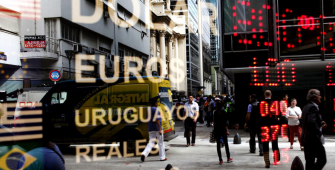
Momentum in the global economy has peaked and risks ranging from higher inflation to trade disputes and debt appear likely to weigh on prospects for 2018, according to the tracking index compiled by the Brookings Institution think-tank and the Financial Times.
The latest update to the index shows that forces contributing to growth remain strong but have levelled off below 2017's peak, while financial markets suggest more difficult times ahead.
The findings follow a series of unsatisfactory business surveys across the world and weak industrial data, which have reduced confidence among economists that 2018 would be the most successful year of the decade so far.
Christine Lagarde, managing director of the IMF, recently warned of an “inexcusable, collective policy failure” if trade tension undermined the world economy. She suggested the fund would not downgrade its 3.9 percent global growth forecast on Tuesday, when it releases its latest economic outlook.
The more up-to-date Brookings-FT Tracking Index for the Global Economic Recovery (Tiger) shows the latest data suggest that momentum is fading.
According to Eswar Prasad of the Brookings Institution, “the world economy's growth momentum remains strong but is levelling off as the winds of trade war, geopolitical risks, domestic political fractures, and debt-related risks loom, with financial markets already reflecting mounting vulnerabilities.”
The index compares many indicators of real activity, financial markets and investor confidence with their historical averages for the global economy and for individual countries.
In advanced economies, the composite index has fallen in 2018 on the back of slightly weaker hard data on output and jobs and a sharp decline in financial market prices.
News are provided byInstaForex.
-
17-04-2018, 06:06 AM #1964

China Makes Biggest Treasury Purchase in Six Months in February

China increased its Treasury holdings in February by $5.8 billion, its biggest purchase in six months. On the other hand, Japan's Treasury holdings fell.
According to the Treasury, China's Treasury holdings increased to just under $1.18 trillion. Foreign net buying of Treasurys was $43.2 billion for the month.
As trade tensions between the U.S. and China escalates, so has rumors that the Chinese government could reduce purchases of Treasuries or even sell some of its holdings. The Trump administration on March 1 announced tariffs on aluminum and steel, which affect China. The U.S. also announced its intention to put tariffs on $50 billion in Chinese goods, and Trump has since threatened to add tariffs to another $100 billion of goods.
In December, China's holdings of Treasuries stood at $1.18 trillion before falling to $1.17 trillion in January.
China is the biggest holder of U.S. Treasuries, with Japan coming in at second place. Japan's holdings declined by $3.6 billion, to a total of $1.06 trillion.
Buyers abroad also purchased $11.8 billion in agency debt and $4.1 billion of corporate debt. They reduced equity holdings by $1.2 billion
Prime News are provided byInstaForex.
-
18-04-2018, 03:05 AM #1965

Twitter Shares Jump After Morgan Stanley Upgrade

Shares of Twitter Inc. soared almost 11 percent on Tuesday and were bound for their best session in two months after Wall Street firm Morgan Stanley raised its recommendation on the social network company to “equal-weight” from “underweight”.
In a report, Morgan Stanley analyst Brian Nowak said that investors are likely to continue to pay a premium for the company's stock due to projections of accelerated revenue growth in 2018 and indications of progress in the firm's turnaround.
The analyst raised his target price for Twitter from $28 to $29. At midday trading, Twitter traded at $31.69 on the New York Stock Exchange.
Nowak cited the company's constructive advertiser conversations, improving user growth and positive revisions for the upgrade.
An unexpected swing to revenue growth caused the stock of the company to rise 12 percent following its last quarter report on February 8 and to date, the stock is up 32 percent.
Despite the increasing popularity of the social network, it has struggled to book a profit and consistently grow its revenue.
In general, analysts are cautions. Nine has a 'sell' recommendation on the stock, 21 have neutral ratings and seven recommend buying, according to data from Thomson Reuters. Overall, they anticipate Twitter's stock to fall to $27.58.
The stock is trading at 45 times projected ratings, against Facebook's valuation of 21 times earnings, Thomson Reuters data showed.
On average, Twitter is expected by analysts to report a 10 percent increase in revenue to $605 million and non-GAAP EPS of 12 cents when it reports its March quarter results on April 25.
Prime News are provided byInstaForex.
-
19-04-2018, 05:45 AM #1966

UK Inflation Drops to 2.5%, its Lowest in a Year
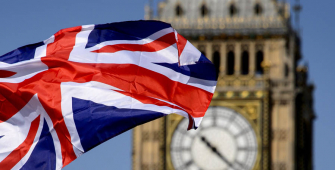
UK inflation dropped in March to its lowest level in a year, raising questions over whether the Bank of England will raise interest rates in May.
The consumer price index (CPI) dropped to 2.5 percent in March from 2.7 percent in February, according to the Office for National Statistics. Economists had expected the annual rate of growth in prices to remain unchanged at 2.7 percent.
A smaller increase than is usual in the price of women's clothing was mainly responsible for the sharp decline, as well as the abolition of the Spring Budget, which meant there was no increase in alcohol and tobacco duty.
The decline in the headline inflation rate came from a fall in the rate of goods inflation from three percent in February to 2.4 percent in March. Goods prices are thought to be more sensitive to the exchange rate.
The sudden drop in inflation will lead investors to question whether the BoE will hike interest rates at its May meeting. However, many economists still expect the Bank of England, which had been forecasting CPI to average 2.9 percent over the first three months of 2018, to raise rates in May.
According to the most recent figures, UK wages increased by 2.8 percent in February.
Inflation has dropped in recent months as the impact of the sudden fall in the value of the pound after the EU referendum begins to fade. Having pushed up the cost of imported goods, the slide for sterling damaged the economy as squeezed consumers reined in their spending.
Prime News are provided byInstaForex.
-
20-04-2018, 03:38 AM #1967

Australia Unemployment Rate Steady in March
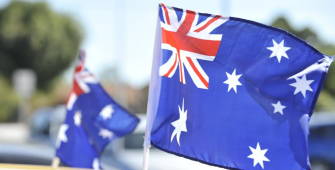
Australian employment barely increased in March while a sharp downward revision to February stopped a record-breaking run of gains, a disappointing outcome that hurt the local dollar and reinforced the case against a rate hike.
The country's jobless rate stood at 5.5 percent in seasonally adjusted terms in March, according to the Australian Bureau of Statistics, from a revised figure of 5.5 percent for February (previously 5.6 percent).
Data showed only 4,900 net new jobs were added in March, short of forecasts for 21,000. February was revised to show a 6,300 drop instead of the initial 17,500 increase, ruining what had been 17 consecutive month of growth.
The Australian economy shed 19,900 full-time jobs in March, from 20,100 increase in February (previously 64,900) while 24,800 part time roles were added. March was significantly worse with full-time positions dropping 19,900.
The news was not all bad with annual job growth of 3.0 percent still twice the pace of U.S. job creation.
The participation rate fell to 65.5 percent, having peaked at 65.7 percent in January as more women entered the labour force.
The strength of employment has been one of the brightest parts of economy, so the recent report would likely cause some unease at the Reserve Bank of Australia (RBA). Growth in the resource-rich economy slowed in the fourth quarter of last year as bad weather hit exports.
The RBA noted in its April policy meeting minutes released that monthly increases in employment had moderated in the first few months of 2018. It said levels of underemployment remained “at relatively high levels”, adding that “leading indicators continued to point to above-average growth in employment in the period ahead”.
Prime News are provided byInstaForex.
-
23-04-2018, 05:17 AM #1968

Protectionism, Debt are Huge Threats to World Economy - EU
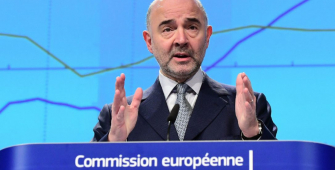
The largest threats to global economic expansion are government debt and protectionist tendencies, according to European Union economy commissioner Pierre Moscovici.
“The two main risks for growth, which is now very solid all over the world, are on the one hand protectionism and trade tensions, and on the other hand debt,” Moscovici said. “There is no trade war for the time being, so that's good.”
The IMF recently cautioned that the world's debt has swelled to a record $164 trillion, a trend that could make it more difficult for countries to respond to the next recession. Global public and private debt increased to 225 percent of worldwide economic output in 2016, the fund said on Wednesday in its semi-annual Fiscal Monitor report. The fund also cautioned that the global commercial order risked being “torn apart” by trade wars.
The global debt burden clouded the IMF's otherwise upbeat outlook of the world economy, which is in its strongest upswing since 2011. The fund expects growth of 3.9 percent in 2018 and 2019.
U.S. President Donald Trump is pushing for a crackdown on China and has announced tariffs on imports of steel and aluminum. The EU is seeking a permanent exemption from the metals levies after Trump granted a waiver to the bloc until May 1 and left open the possibility of a longer exclusion. The European Commission, the EU's executive branch in Brussels, has said that failure to gain a longer exemption from the U.S. metal-import duties would lead to a tit-for-tat response by the bloc.
News are provided byInstaForex.
-
24-04-2018, 05:09 AM #1969

Australia Inflation Gains 0.4% In Q1

Consumer prices in Australia were up 0.4 percent on quarter in the first quarter of 2018, the Australian Bureau of Statistics said on Tuesday.
That was shy of expectations for 0.5 percent and down from 0.6 percent in the three months prior.
On a yearly basis, inflation advanced 1.9 percent - unchanged from Q4 but beneath forecasts for 2.0 percent.
The Reserve Bank of Australia's weighted median was up 0.5 percent on quarter and 1.9 percent on year, while the trimmed mean added 0.5 percent on quarter and 1.8 percent on year.
News are provided byInstaForex.
-
24-04-2018, 05:51 AM #1970

Odds of Fourth Interest Rate Hike in 2018 Surges to Almost 50 Percent
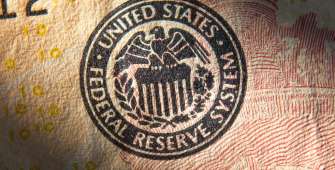
Chances of the Federal Reserve raising interest rates this year four times rose to almost 50 percent on the CME's FedWatch tracking tool, indicating that the market is finally coming around to the idea that the central bank will be raising interest at a faster pace than initially expected.
While some big forecasting Wall Street firms for months have been forecasting that the Fed will step up the pace of its monetary policy tightening, traders had been expecting three moves this year. The first increase has been approved in March, plus two more, potentially in June and September.
But fed fund futures market on Monday gave almost a 50 percent chance that the U.S. central bank would move one more time in December.
The CME's FedWatch tool, considered to be a reliable gauge of Federal Open Market Committee's actions, indicated 48.2 percent change of four rate hikes in early trade. The shift towards a more aggressive Fed came as the 10-year Treasury note yield hovered around 3 percent, which bond analysts have estimated would be a psychologically important level.
The odds had had been just 33 percent a month ago and less than 40 percent as of late last week.
In their latest forecast in March, FOMC members still indicated that there would be three increases in the funds rate this year. But with increasing indications of inflations accelerating and as the market starts to price in more moves, the committee could start to set its target higher.
Prime News are provided byInstaForex.
-
Sponsored Links
Thread Information
Users Browsing this Thread
There are currently 4 users browsing this thread. (0 members and 4 guests)
24 Hour Gold
Advertising
- Over 20.000 UNIQUE Daily!
- Get Maximum Exposure For Your Site!
- Get QUALITY Converting Traffic!
- Advertise Here Today!
Out Of Billions Of Website's Online.
Members Are Online From.
- Get Maximum Exposure For Your Site!
- Get QUALITY Converting Traffic!
- Advertise Here Today!
Out Of Billions Of Website's Online.
Members Are Online From.






 LinkBack URL
LinkBack URL About LinkBacks
About LinkBacks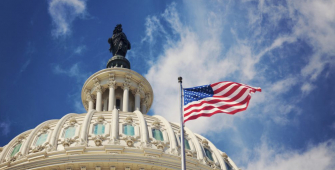





 Reply With Quote
Reply With Quote

